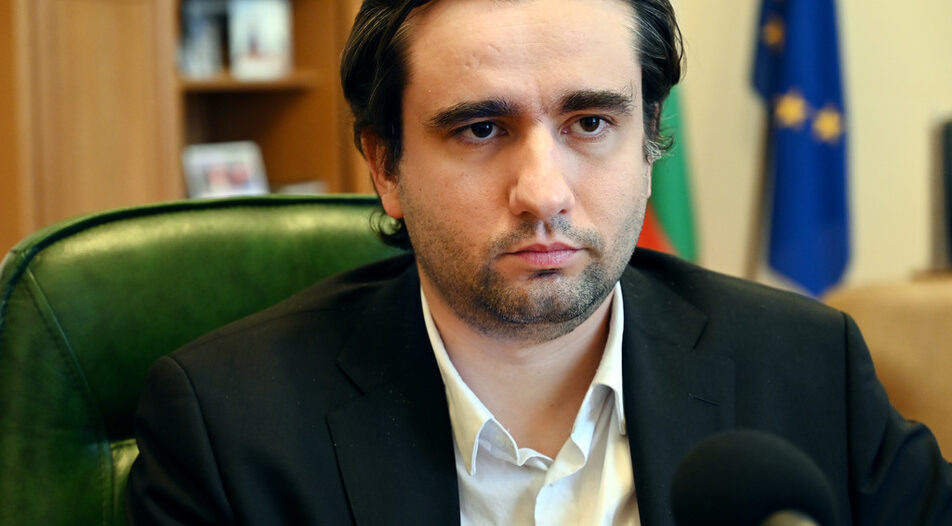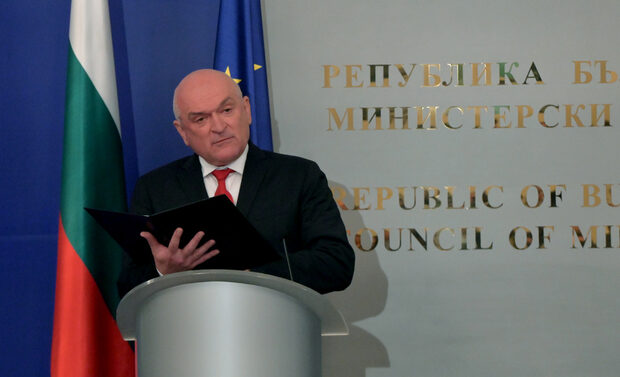During the negotiations to form the current government coalition you agreed to many things that you say will be done in the first year: electronic identification, new ID cards with e-signature, radically cutting back administration and paperwork. Is this realistic to be done in one year?
The plan is ambitious, but that is why we are here, to be ambitious. It's realistic, this is not wishful thinking. We know how much time this will take. Some of the things that we thought will take a lot of time are actually not that hard to achieve. I'll give you an example: the law on administrative penalties is from the 60s, and it has not really been changed since then. Until very recently there was a requirement that you receive a carbon copy when you are issued a fine. I haven't seen carbon paper for quite a while now, but it was in the law, and this was a reason for courts to overturn fines. These are the kind of things that are prevent the collection of electronic fines from drivers - you can check if you have been issued a fine as a driver, but you will have to go physically to the institution to pay it. Why? Because the law says that a document must be delivered to you physically.
Is that a tough change? No. We can put an equation mark between paying and delivering. The system is already there, so the change will take one or two months, that's it. There is risk that the parliament will be flooded with small corrections, one or two paragraphs. For seals and stamps to go, we need to change one or two laws and put in there a penalty mechanism for non-compliance.
When we talk about e-government, the main barrier in front of it is not someone who really doesn't want something to be electronic, but because of reasonable doubts about the legitimacy of the document stream. Something can be lost or changed, and that is why "it is safer on paper". I say that with a bit of irony.
Why have e-government ministry now and what will the transformation look like?
There is no universal answer to the question whether it has to be a ministry or an agency. In different countries the practice differs. In some places it is an agency, in others - a ministry. The plus of a ministry is that the political team is engaged directly, while that is not the case with an agency. We figured, given the focus on the topic, that it will be better to have a ministry. The minus is that now we will have to structure the new ministry from scratch.
Speaking of e-government, what has already been done, what has to be reworked, and what hasn't been done at all?
A lot has been done but much less has been achieved. This is also the problem with the administration when it comes to European money. The indicators are how many systems we have established, how much money we have spent, how many services we offer. But nobody cares how much these services are used, by how many people, how much time they have saved. This way of thinking has brought us to the point where we have services, but they are used very rarely or not at all.
Some of the basic infrastructure work has been done. At the very least, we have a state cloud, so we don't need to have each administration buy its own hardware. This is something that actually still happens, but we will stop it, we have enough servers in rooms not fit for them.
Would it be up to you to package related services in one place? For example, the process of obtaining a driving license?
Not only that. What we have to do is start with the processes and write them down clearly in machine-readable formats. From then on we can put these processes in so-called "episodes of life" and "events of business". This is a topic that is more closely associated with deputy prime minister Kalina Konstantinova. For example, Bulgarian post offices can become a place where people request all the services they need, without going back and forth between institutions. This is something that we will do jointly with her. The tool to control who is following the Law on Electronic Government, however, is here with us. There has always been a mechanism for enforcement, ever since there is such law, but the state itself doesn't follow the law. It sounds very nice, but every institution says that "our special law says something different."
What level of priority do you assign to e-identification?
The highest, it is in first place. This is what we started with even before 2022. It is the key to everything. Right now, we have services and I, with my e-signature and knowledge of the law, can request every service electronically. But the idea is not to have only a selected few who can request such services. Very often I request a service and I receive a call telling me "Well, you can't!". And we start arguing why I actually can and why they don't follow the law. We can't, however, tell citizens to just argue with the administration.
Electronic identification is a unified way for citizens to request services, easy and for free, as opposed to the e-signature. This way they can say who they are and make a request.
What do you plan to cut back on ID documens like driving licenses? How will institutions react to these changes?
The Traffic Police agency, part of the Interior Ministry, is an example of an institution where change has already happened. They have access to all relevant data on the driver they have pulled over through their tablets and his personal identification number - does he have a license, is the car put up for search, is he or she owner of the car or not. The task here is to relieve the driver of the obligation to carry a stack of documents. These are easy revisions, one or two paragraphs off a law, so we change it and then instruct law enforcement officials what to do.
Until very recently you were CEO of a cybersecurity company. Bulgaria has both bad image and bad experience in cybersecurity. What are your plans in this area?
Cybersecurity policy will fall to the ministry. There are some instruments that we will use to raise the level of cybersecurity. The Recovery Plan is one of them. In it there is a large cybersecurity project that we will alter a bit. Another instrument will be the future operational program that will come in the wake of the "Good governance" program. The idea is not just to have some cool American technologies. The idea is to train people. Part of them will go to the private sector, but part of them will actually help with monitoring threats and responding to them.
The realistic scenario: what should be ready by January 1st 2023?
E-identification, e-prescription and most healthcare services, no more stamps, seals and notifications, no more stickers, notes and so on. Also, the structural question of efficient cooperation of the state with the Information Services company. Along with that we must have started working on other things by sectors - for example, building permits, so that you won't have to carry a whole box of documents when you need a permit.












